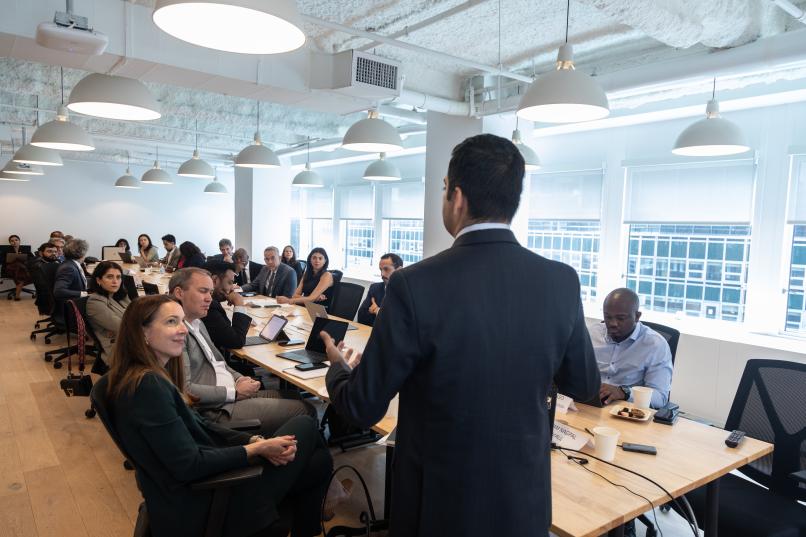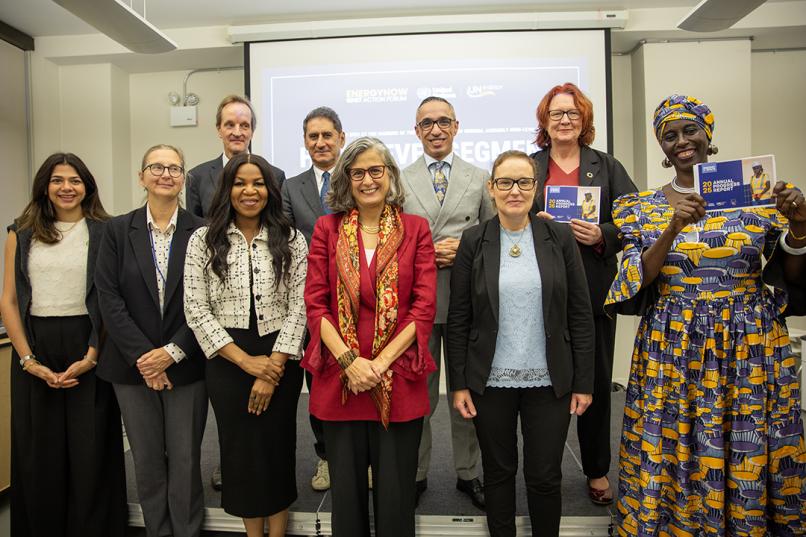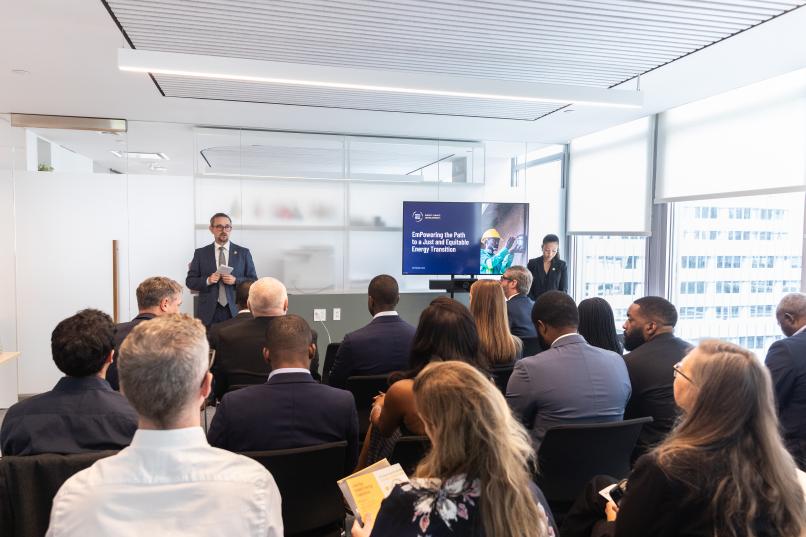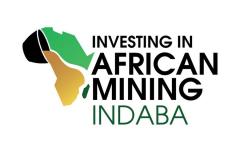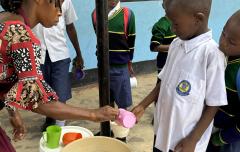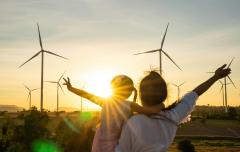SEforALL promotes innovation and equity in the global energy transition at UNGA80 and Climate Week NYC
Each year, the UN General Assembly (UNGA) provides a platform to engage world leaders whose commitments are key to advancing clean energy transitions. Alongside Climate Week NYC, it enables governments, businesses and civil society to accelerate universal energy access and scale solutions for a just, equitable transition.
At UNGA80, SEforALL emphasized expanding energy access, innovating in financing and delivery, establishing linkages with industrialization and ensuring equity in the energy transition. Led by the CEO and UN Secretary-General’s Special Representative for Sustainable Energy for All, our delegation joined partners to advance Mission 300, highlight progress on Energy Compacts and promote solutions to expand energy access and clean cooking to achieve SDG7 targets.
Below is a summary of our key activities at UNGA80 and Climate Week NYC 2025.
SEforALL Lights Up Times Square with the EmPower Campaign Launch
At UNGA80, SEforALL launched EmPower, a global campaign to shift the narrative around clean energy as the catalyst for economic transformation and the foundation for a future-ready generation. The launch featured a high-energy livestream from New York, streamed across multiple platforms, combining youth voices, global business leaders and policymakers in an interactive broadcast.
Through EmPower, SEforALL is reframing the energy story from problem to opportunity, from distant future to solutions already here, and from fragmented voices to collective action. The campaign will run through 2030, creating a platform to mobilize resources, reframe the energy story and ignite global action.
The launch was amplified by a month-long digital billboard in Times Square, symbolizing both the urgency and global reach of the campaign. At UNGA80, leaders emphasized business innovation, green industrialization and opportunities for Africa’s energy transition—setting the stage for how EmPower will drive awareness and engagement worldwide.
